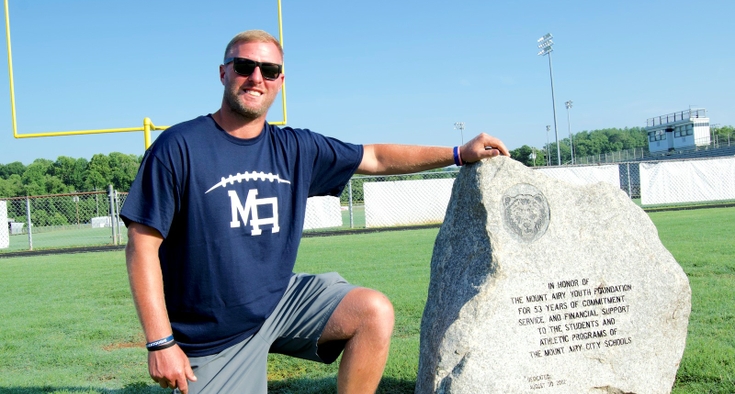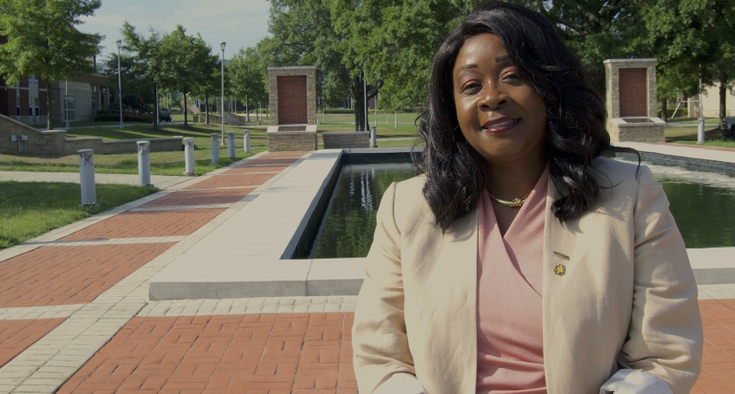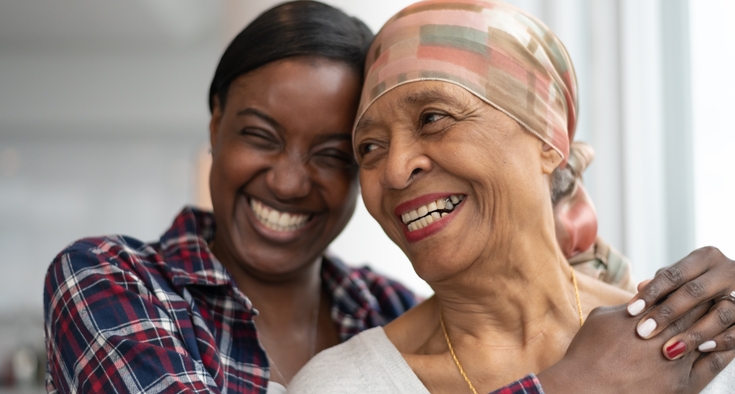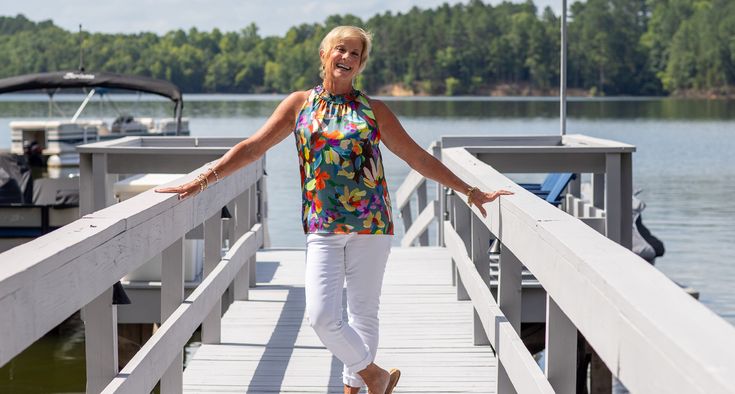What makes your life sparkle? Is it traveling and seeing new places? Your daily jog? Painting landscapes?
That’s what cancer physician Dr. Kavya Kannan asks her patients.

Kannan’s practice is housed in the Novant Health Cancer Institute - Forsyth in Winston-Salem. About half her patients have cancer; the rest have blood disorders. (See more on this below.) But when she does diagnose someone with a life-altering condition, Kannan knows that everything changes. “Patients make very conscious decisions from that point on,” explained Kannan.
That’s why, from the beginning of her relationship with patients, she talks about their goals — and what the patient feels makes their life worth living.
Kannan doesn’t call it an “end of life” discussion because some of her patients may live decades after their diagnosis. Instead, she calls it a “goals of care” conversation.
Treatment options have come a long way over the last 30 years, Kannan said. Patients who had a life-threatening diagnosis three decades ago may live for many years now.
Therefore, to understand what’s important to her patients, Kannan asks, “What do you like to do? What are your short-term and long-term goals? What don’t you want to lose?” She encourages them to be as specific as possible, including timelines, if relevant.
Supportive care throughout your cancer journey.
Care tailored to your goals
Patients’ answers help Kannan figure out what treatments to recommend.
“Due to advances in cancer treatments including the advent of novel therapies like immunotherapy and targeted therapy, we now have options in addition to, or in place of, chemotherapy for a lot of patients,” said Kannan. “Part of that is based on minimizing side effects while maintaining efficacy, so I’m really tailoring based on what the patient has said is important to them.”
For instance, one patient wanted to celebrate her 50th wedding anniversary with her husband in Rome. To help the patient achieve this goal, Kannan prescribed targeted therapy tablets — which can be taken anywhere — instead of infusions that have to be delivered in a medical setting.
Another patient loved to play guitar, so Kannan didn’t consider any treatments that might have a side effect of numb fingers.
One of Kannan’s patients wanted aggressive treatment but also needed to be able to work and care for her young child. Kannan got the symptom management group involved to help control the patient’s physical symptoms and anxiety around treatment, and to provide caregiver support.
Patient feedback remains key throughout treatment, however. “As physicians, we take the Hippocratic oath very seriously: ‘First, do no harm,’” Kannan said. “If at any point I believe that the treatment we chose — or our choice not to treat — is harming more than it’s helping, I take a pause and revisit the patient’s goals of care.”
Best doctors. Amazing nurses. Remarkable care.
Bringing in other support
Kannan also encourages her patients to deeply connect with family members, friends, support groups and their spiritual advisors.
Sometimes, family members disagree with a patient’s choices about treatment. “These are some of the toughest conversations that we have,” Kannan noted. “Sometimes it's very hard to perceive what your family member is going through.”
She encourages families to remember that even though the patient is in a relationship with you, they are a separate individual — and as Kannan has learned, the “right” decisions can only be made by the patient.
The right decision is personalized
To illustrate this: Early in Kannan’s career, she had to tell two separate patients that they had a life-threatening illness. If they didn’t treat the illness, they would die within days — but treatment would be intensive, painful, and probably wouldn’t cure them.
Patient One told Kannan, “I’ve lived a full life, and I don't want my kids or grandkids to have any memory of me lying in a bed in the ICU. I want my family to remember me as the person I am right now.” So, Kannan recommended he go home and begin hospice care. His family flew in, and they prayed with their pastor, took family photos, and shared jokes and memories. That patient only lived a few more days, but he told his family that they were the happiest days of his life.
Patient Two didn’t have his estate in order and therefore he chose to be treated. “He went home pretty debilitated and fatigued, but that's the decision that he made because he had a lot of things to take care of,” Kanaan said. “He wanted to be alive to take care of them.”
It was then that Kannan truly realized: The “right” decision is personalized to each patient.
“For the first patient, not treating his illness was the right decision for him and his family,” Kannan explained. “Yes, he passed away, but he had the best moments with his loved ones. What if I had taken the stand of, ‘No, you have to go through this treatment; there's a small chance of cure.’? At the end of the day, being there and being supportive of whatever decision comes from their life experience — this is the biggest lesson I have ever learned.”
‘This is my calling’
Helping patients with blood disorders and blood cancers
Dr. Kavya Kannan is a hematologist and oncologist at Novant Health Cancer Institute - Forsyth in Winston-Salem. Around half the patients she treats have blood cancers (she treats all types of blood cancer except acute leukemia), and the other half have non-cancerous “classical hematology” blood disorders, including:
- Bleeding disorders
- Platelet disorders
- Red or white cell disorders
- Clotting disorders
Originally, Kannan planned to be a cardiologist and earned a full-ride scholarship to medical school. However, during her residency at Wake Forest Medical School, she became close to a 70-year-old patient with cancer. One night, the patient coded, with Kannan working to save her until the patient’s husband leaned on her shoulders and said, “Let her go, Dr. K. I can’t see her suffer like this.”
Kannan went home and cried all night — then had her “eureka moment”: “This is my calling. I feel in my soul that this is what I am supposed to do,” Kannan said. “I changed my ambitions and career in that one life experience.”
Today, Kannan says she wouldn’t do anything different. “I am very grateful I can be part of patients’ toughest times — be with them and help them make those tough decisions. It’s fair to say that they have influenced me and inspired me more than I imagined, and it is a tremendous blessing.”











